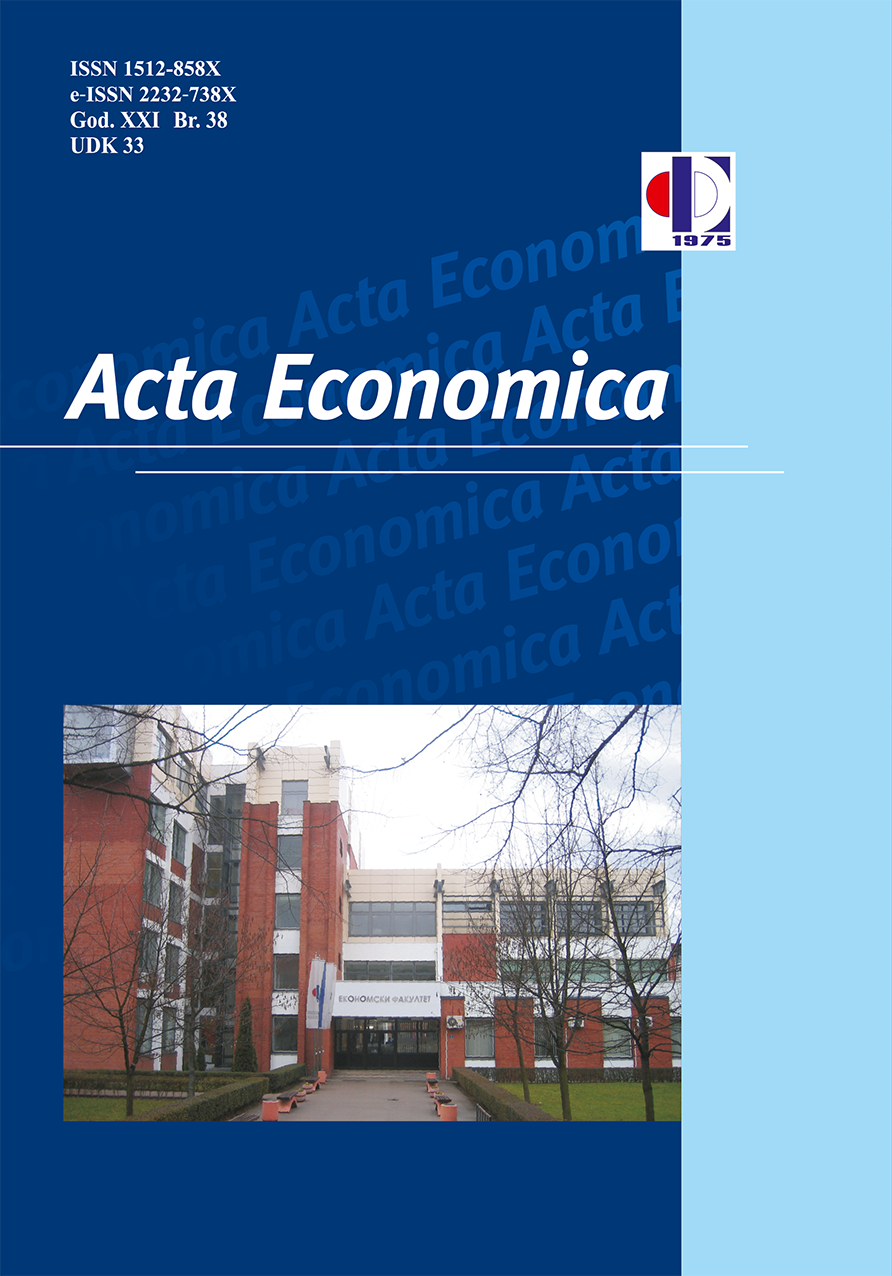THE QUALITY OF INSTITUTIONS IN THE COUNTRIES OF SOUTHEAST EUROPE: A COMPARISON WITH THE MEMBERS OF THE EUROPEAN UNION
DOI:
https://doi.org/10.7251/ACE2339111TAbstract
The purpose of this paper is to show the importance of the development of institutions and the institutional environment in a globalized world. The methodology used to measure the quality of institutions are components of the World Governance Indicators Database developed by Kaufmann, Kraay & Mastruzzi (2010) where we performed a comparative analysis of the quality of institutions for three samples of countries, the countries of Southeast Europe (countries of the region), the newest members of the EU and the countries of Central Europe and the Baltic States. After that, we showed the degree of correlation between economic development measured by GDP per capita in purchasing power parity and each of the six indicators of the quality of institutions. The results show that the countries of the region lag significantly behind the countries we call New Europe (Central Europe and the Baltics), but also lag behind the youngest members of the European Union in terms of the quality of institutions, i.e. the rules of the game. When it comes to correlation between economic development and institutional environment, for all 6 indicators of instituional environment, a strong and positive correlation was shown, especially between the rule of law and economic development. The conclusion is that the countries of the region must strengthen the rule of law, fight against institutional corruption, ensure political stability so that the economic standard of their citizens could improve.

